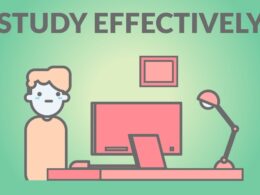Everyone is up in arms about the word “menopause.” Some people believe that it is not a disease and some say they’re more afraid than they ever thought they’d be. Regardless of whether or not you question its validity, there are plenty of myths that surround this womanly milestone. In this blog post, I’ll talk about how to become a menopause coach.
How to get started as a menopause coach
One of the ways to help women through menopause is by becoming a menopause coach. A menopause coach can provide support and advice on how to manage hormone levels, cope with Hot Flashes and other symptoms and live a fulfilling life during this time. In order to become a menopause coach, there are a few things you need to do.
First, you need to get registered with one of the many national certification organizations that offer certification as a menopause coach. There are many certification organizations that offer different levels of certification, so make sure you find one that is right for you. Once you are registered, the next step is to become certified. The certification process will require taking an online course and passing an exam. It’s important to note that becoming a certified menopause coach doesn’t mean you are experts on all aspects of menopause – but it does mean that you have taken the necessary steps to learn about the topic and are able to provide quality coaching services to your clients.
Once you have completed the certification process, it’s time to start offering your services to your clients. You can offer your services as a part-time or full-
What is Menopause?
Menopause is a time when a woman’s hormonal production begins to decline. This usually happens between the ages of 45 and 55. During menopause, women experience changes in their menstrual cycle, which may or may not happen every month. Additionally, they may experience hot flashes, vaginal dryness, and mood swings.
Since menopause can be both mentally and physically taxing, it’s important to have help along the way. That’s where menopause coaches come in! A menopause coach offers support and guidance during this transforming time. They can help you manage your health conditions and feel confident about your own transition.
If you’re feeling overwhelmed by all the change happening around you, contacting a menopause coach may be the perfect solution for you!
Symptoms of the Menopause
According to WebMD, symptoms of menopause may include: hot flashes, dry skin, low energy, trouble sleeping, mood swings, vaginal irritation and pain (especially during intercourse), decreased libido, and changes in appetite. To help manage these symptoms, many women turn to a menopause coach.
A menopause coach can provide insight and support as women navigate these changes. A menopause coach can help identify possible causes of problems and recommend remedies. Coaching can also help increase confidence and promote social activities.
Causes of the Menopause
There are many factors that can contribute to the onset of the menopause, such as genetics, age, lifestyle choices, and illness. However, many women also experience more severe symptoms as they near the end of their reproductive years.
If you’re experiencing symptoms such as hot flashes, vaginal dryness, sleep problems, mood swings, headaches and decreased libido, it’s important to talk to your doctor. There are a variety of treatment options available, including hormone replacement therapy (HRT), complementary therapies like yoga and acupuncture, and surgery. If you feel like you need more support than your doctor can provide, consider hiring a menopause coach. A menopause coach can help you optimize your health through diet and exercise recommendations and emotional support.
If you’re interested in finding a menopause coach to help you manage your symptoms, try searching for online services or contacting your local experts.
Signs that your symptoms are increasing
It can be challenging to tell if symptoms of the menopause are increasing but there are some changes that you may start to experience. If your symptoms have started recently and you find them increasing, it’s important to speak with your doctor about your situation.
Below are six tell-tale signs that your symptoms are starting to increase:
Acne is more common
- Hot flashes become more frequent and intense
- Vaginal dryness, lack of libido and mood swings become more frequent or severe
- Weight gain is a common symptom during this time
- Muscle aches and pain, especially in the joints, can also be a sign
- You might experience changes in hair growth or thinning
Introduction
Mensopause means “the phase of life, typically occurring between the ages of 45 and 55, during which women experience a gradual decline in estrogen levels.” In the United States, more than half of women will experience menopause in their lifetime. What are some things you can do to prepare for this time?
There is no one golden answer to this question. The best approach for each individual may differ based on personal circumstances and preferences. Nevertheless, there are some general tips that may be helpful in dealing with menopause is:
– Discuss concerns and expectations with your health care provider. This will help to establish an individualized plan.
– Establish a Support Group. Talking to others who are going through the same process can provide comfort and support.
– Take actionable steps towards maintaining a healthy lifestyle. Regular exercise and a nutritious diet can support overall well-being during this time.
Symptoms of Menopause
As women approach menopause, they may experience a variety of symptoms, including hot flashes, mood changes, and sleeplessness. Becoming a menopause coach can help women manage these symptoms and keep their quality of life intact.
Hot flashes are characterized by intense heat waves that sweep over the body periodically. They can last for minutes or hours at a time and can be incredibly uncomfortable. Hot flashes can lead to sleep disturbances, since they cause the body to become hypersensitive to sunlight and other environmental stimuli.
Mood changes are common during menopause. Some women feel irritable and restless, while others experience an increased sensitivity to emotional stress. It’s important for women to talk with their doctor about any mood changes they’re experiencing in order to determine if there’s a specific reason for them.
Sleeplessness is another common symptom of menopause. As estrogen levels decrease, sleeping habits may change as well. Women may find it more difficult to fall asleep or stay asleep throughout the night. Assessing sleep habits and making appropriate adjustments can help alleviate sleeplessness in menopausal women.
Statistics on menopause
If you’re like most women, you’re eagerly counting down to menopause. But before you cross into this unpredictable time, there are a few things you need to know.
In the next few years, more and more women will experience menopause. In the United States, women ages 50-54 are the fastest-growing group of menopausal women.
So what’s involved in menopause? “The transition from premenopausa to menopausa typically comprises two separate but interacting stages: perimenopause and menopause,” according to About.com. “During perimenopause, some hormonal changes start occurring which can make life more difficult in some ways (hot flashes, vaginal dryness, mood swings) while offering other benefits (lessED, better joint function). This is followed by the much more momentous and significant transition into the final stage of lifecalled menopause.”
There are different opinions on how long the process should last for each woman, and it’s important to talk with your doctor about your individual situation. However, according to Everyday Health, here are five things that most people experience during this time:
- Hot flashes: These occur in about half of all women during perimenopause and can range from mild to severe.
- Vaginal dryness: This is particularly common in the early stages of menopause and can make sexual intercourse uncomfortable and difficult.
- Mood swings: This can be a result of fluctuating levels of estrogen, as well as other natural changes taking place in your body.
- Less testosterone: This is a common trend during menopause, as estrogen levels decrease and testosterone production decreases as well.
- Fatigue: Often called “the shutdown syndrome,” this is a result of decreased energy levels, muscle weakness, and trouble sleeping.
-The Challenge of Menopause
-What You Need to Know About Menopause
-Helping Your Wife through Menopause
-Coping With Depression and Anxiety in Menopause
-Dealing with Hot flashes and Night sweats
-Treating menopausal mood swings and anxiety
-Tips for Exercise during Menopause
Menopausal women have a lot on their minds. They’re concerned about their health, their relationships, their day-to-day tasks, and the stresses of everyday life. It can be difficult for them to find the time or the energy to focus on anything else. That’s where a menopause coach can help.
A menopause coach is a personalsupport specialist who helps women through the perils of menopause. She can provide guidance on everything from dealing with hot flashes and night sweats to improving your mood and reducing anxiety.
If you’re feeling overwhelmed by all of the changes happening in your life, consider hiring a menopause coach as your consultant. She can offer you expert advice and support as you navigate this special time in your life.
-Why Menopause Coaches are Important
-What a Menopause Coach Do
-The Benefits of Becoming a Menopause Coach
-How to Get Started as a Menopause Coach
When the time comes for many women, the dreaded “menopause” STATEMENT appears on their signs. But what does it actually mean? And is there anything we can do about it? Yes, and much more! As women enter this time in their lives, they begin to experience a few key changes. These changes can be considered life’s natural balancing act – shedding pounds after adding them during our fertile years, experience extreme mood swings and fluctuations in energy levels.
But while these happenings are generally seen as just part of getting older, some women may find they’re struggling more than others. This can be due to many factors such as thyroid dysfunction, anxiety, challenging relationships or job changes etc. Regardless of what is causing you difficulty now in your 40s 50s or 60s, if you’re experiencing symptoms related to hormonal imbalance – such as hot flashes night sweats and foggy memory – you may be experiencing menopause.
That’s why menopause coaches are so important! Co aching allows you to work with a professional who will help to identify the underlying issues and provide solutions. And while menopause may seem like a daunting time, there are plenty of benefits to taking on this coaching role.
Some of the benefits of becoming a menopause coach include:
-Understanding your body more thoroughly – Seeing the changes that occur during menopause can be overwhelming, so having an outside perspective can be very helpful. A menopause coach will be able to pinpoint any imbalances and offer advice on how to get back on track.
-Improved mood – One of the most common complaints among women during menopause is feeling down or depressed. A menopause coach can help to lift your spirits by helping you understand your own emotions and offering positive reinforcement.
-Reduced stress levels – Another common issue during menopause is increased stress levels. Having someone to talk to about your experiences and share tips on how to manage them can be immensely helpful.
-Improved sleep patterns – Poor sleep patterns are often associated with stress and anxiety, which are common contributors to menopause symptoms. By working with a menopause coach, you can learn strategies for getting a better night ’s sleep.
So if you’re feeling lost and struggling with the changes happening to your body, it may be time to consider becoming a menopause coach. By working with an experienced professional, you can gain the knowledge and tools needed to manage this challenging time in your life.
Menopause: What’s it all about?
When you have your last menstrual period, you may be wondering what comes next. The process of menopause can be confusing, and there are a lot of questions and concerns. If you’re looking for help with this turbulent time, consider becoming a menopause coach.
Being a menopause coach can help you adjust to the changes happening during this phase of your life. You’ll meet other women who are going through the same challenges and feel supported by each other. Plus, being a coach can give you new perspective on your own experiences. Here are four tips for becoming a menopause coach:
- Talk to your doctor
The first step is talking to your doctor. They can help you get started with the process of becoming a menopause coach and answer any questions you have.
- Join an online community
You don’t need to be living in close proximity to other women going through menopause in order to be a successful coach. There are many online communities where coaches meet regularly to exchange advice and support one another. Look for communities that focus specifically on menopause issues and sign up today!
- Attend workshops or courses
There are tons of workshops and courses available that will teach you everything you need to know about menopause. Network with other coaches after attending a workshop or course, and continue learning from them as you go.
- Practice, practice, practice
This is the most important tip of all! The more you practicing becoming a menopause coach, the better you’ll be at it. There’s no one perfect way to do it, but incorporating some of the techniques listed above will help you get started.
Menopause science: How do men go through the menopause?

When a woman reaches the menopause, her ovaries basically stop producing eggs. The body continues to produce estrogen (a female hormone) but at a much lower level. This is when some women complain of symptoms such as hot flashes, mood swings, and difficulty sleeping.
There is no one-size-fits-all answer to how a man goes through the menopause. However, experts say that men experience the transition in different ways depending on their age and genetics.
According to the American Menopause Society, the average age for menopause in North America is 51 years old. In Europe, it’s slightly earlier — typically around 50 years old. However, there is no set time frame or rule for when a woman will experience the changes associated with the menopause.
The good news is that there are ways to manage these symptoms and improve your quality of life during this time of change. Here are some tips for becoming a menopause coach:
1 Understand your options – Whether you choose to go through the transition naturally or take medication to manage symptoms, it’s important to be informed about your options. Discussing options with your doctor or therapist can help you make the best choice for you.
2 Get organized – Having a plan set in advance can help you better cope with the changes of the menopause. Make a schedule for your day, week, and month that includes important tasks such as exercise, relaxation techniques, and stress management exercises.
3 Connect with other menopausal women – Identifying and talking to other women who are going through similar experiences can be very supportive. Reach out to online communities or support groups to get connected with others who will understand and share in your experience.
4 Listen to your body – If you notice any changes in your body that make you feel uncomfortable, don’t hesitate to talk to your doctor or healthcare provider about them. These might include some earlywarning signs for more serious issues such as heart disease or osteoporosis.
A standard menopause program: What’s involved?

A typical menopause program will involve a combination of dietary changes, exercise, relaxation techniques, hormone therapy and other complementary treatments. Here’s a look at the most common components of a menopause program:
- Dietary Changes: Foods that have been shown to improve symptoms of menopause include soluble fiber, magnesium and omega-3 fatty acids. Additionally, foods that are high in antioxidants may help to protect against the development of cancer during this time.
- Exercise: Regular exercise has been shown to boost mood and reduce stress levels in women going through menopause. The types of exercises that are recommended vary depending on each woman’s level of fitness and health history, but typically they include aerobic activities such as biking or walking and strength-training exercises such as yoga or Pilates.
- Relaxation Techniques: Stress can trigger symptoms of menopause, so it’s important to find ways to reduce the amount of stress in your life. Techniques that have been shown to be helpful include yoga, meditation and deep breathing exercises.
- Hormone Therapy: Depending on an individual’s symptoms and overall health condition, hormone therapy may be recommended as part of a menopause program. This type of treatment may include estrogen replacement therapy (ERT), testosterone replacement therapy (TRT) or both.
- Other Complementary Treatments: Alternative therapies such as herbal supplements and complementary treatments may be recommended as part of a menopause program based on an individual’s symptoms and health history. Some of the most common complementary treatments that are used in menopause include fertility enhancement, weight loss and stress relief.
Conclusion
When it comes to menopause, no one knows it better than a women going through it. By becoming a menopause coach, you can provide support, advice and resources to other women as they go through this tumultuous time in their lives. Becoming a menopause coach isn’t easy — there is a lot of research and writing that goes into being an effective coach — but the rewards are well worth it. If this interests you, read more about what becoming a menopause coach involves here.







